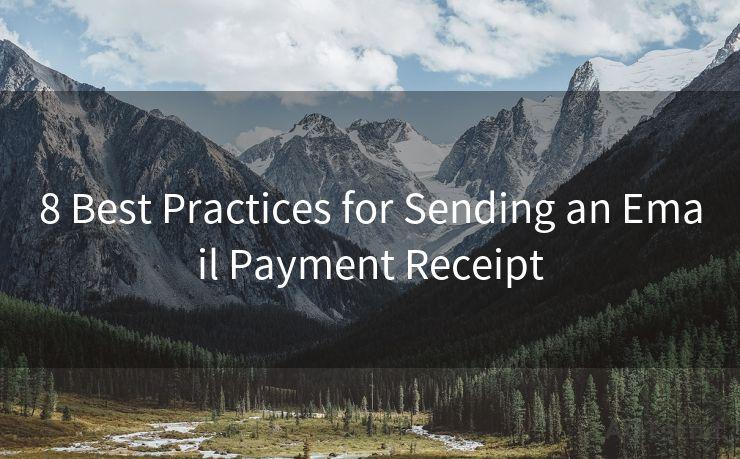8 Best Practices for Sending an Email Payment Receipt




When it comes to running a business, providing customers with payment receipts is not only a standard practice but also a legal requirement. Email payment receipts are convenient and efficient, but there are certain best practices to follow to ensure clarity, professionalism, and compliance. Here are the eight best practices for sending an email payment receipt.
1. Use a Professional Template
Using a professionally designed template for your email payment receipt ensures a clean, organized, and easy-to-read layout. It reflects positively on your brand and enhances customer trust.
2. Include All Necessary Information
Your receipt should include the date of payment, the amount paid, the payment method used, a description of the product or service purchased, and any applicable taxes or discounts. Additionally, include your company's contact information and a thank you note to show appreciation.
3. Ensure Accuracy

Double-check all the information on the receipt before sending. Accuracy is crucial, as any discrepancies can lead to confusion or even legal issues.
4. Protect Customer Privacy
🔔🔔🔔
【AOTsend Email API】:AOTsend is a Managed Email Service for sending transactional emails. Support Email Types: reminders, authentication, confirmations, notifications, verification codes, invoices, password resets, account activations, billing statements, two-factor authentication (2FA), and one-time passwords (OTP) emails, etc. $0.28 per 1000 Emails. 99% Delivery, 98% Inbox Rate.
You might be interested in:
Why did we start the AOTsend project, Brand Story?
What is a Managed Email API, How it Works?
Best 25+ Email Marketing Platforms (Authority,Keywords&Traffic Comparison)
Best 24+ Email Marketing Service (Price, Pros&Cons Comparison)
Email APIs vs SMTP: How they Works, Any Difference?
When sending receipts, ensure that you are complying with data protection laws, such as GDPR. Avoid including unnecessary personal information and ensure that your email system is secure.
5. Send Receipts Promptly
Customers expect to receive their receipts immediately after payment. Delays can cause confusion and may even lead to trust issues. Automate the process if possible to ensure timely delivery.
6. Optimize for Mobile Devices
With the increasing use of mobile devices, it's essential to ensure that your email receipts are mobile-friendly. Use responsive design principles to ensure readability on smaller screens.
7. Provide Clear Call-to-Action
Include a clear call-to-action (CTA) in your receipt email, such as a link to your website, FAQs, or customer support. This not only provides additional value to the customer but also encourages further engagement with your brand.
8. Test and Refine
Regularly test your receipt emails to ensure they are working correctly and are user-friendly. Collect feedback from customers and refine your process based on their input.
By following these eight best practices for sending an email payment receipt, you can ensure a professional, efficient, and customer-friendly experience. Remember, the receipt is often the last touchpoint in the customer journey, so it's important to make a good impression.
In conclusion, sending email payment receipts is an integral part of any business transaction. By adhering to these best practices, you can not only comply with legal requirements but also enhance customer satisfaction and loyalty. Always remember to prioritize clarity, accuracy, and professionalism when communicating with your customers.




Scan the QR code to access on your mobile device.
Copyright notice: This article is published by AotSend. Reproduction requires attribution.
Article Link:https://www.mailwot.com/p913.html



